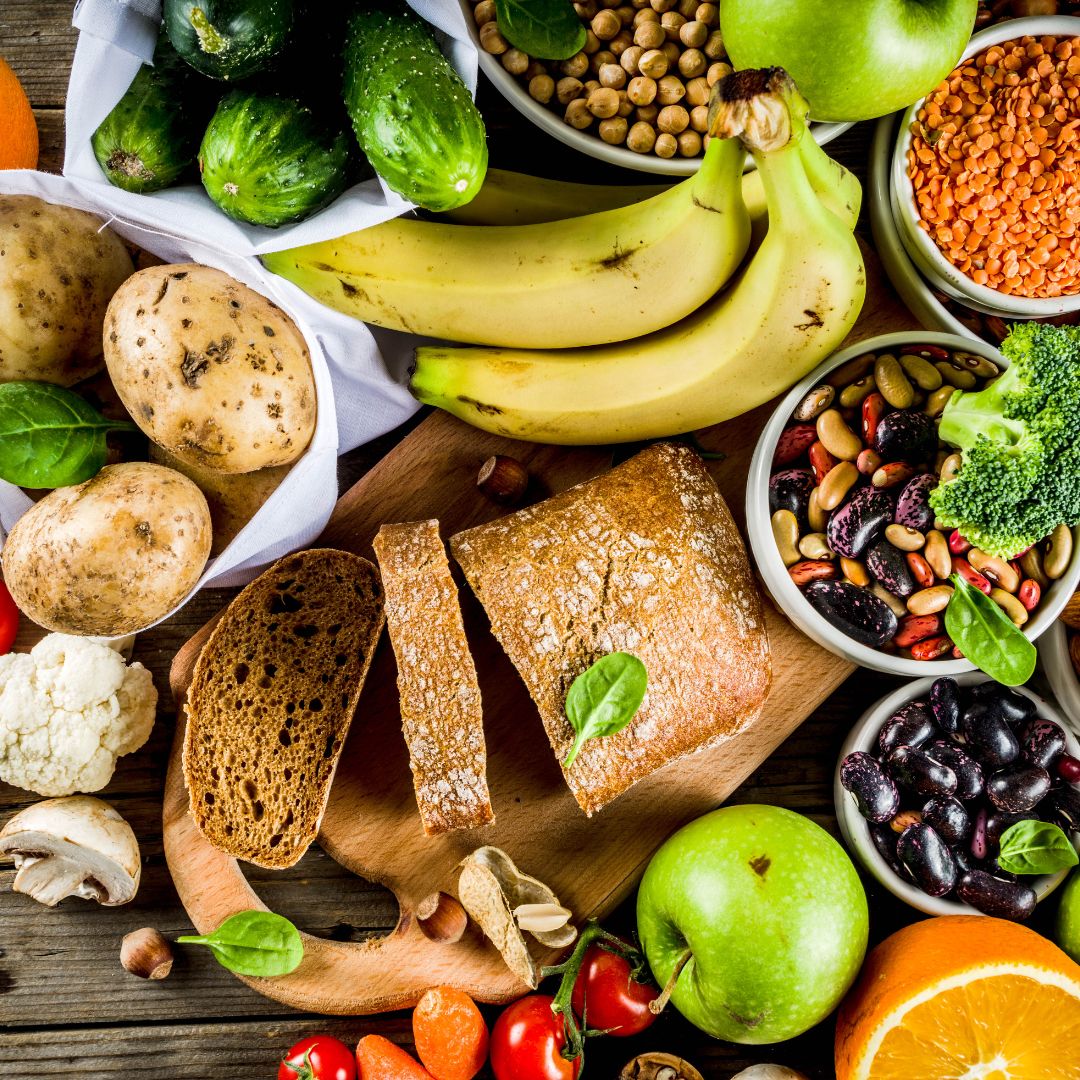
Let's get to know carbohydrates
Share
To be and remain healthy, we must consume a variety of nutrients (proteins, lipids, carbohydrates, vitamins, minerals and trace elements) in the ideal quantities to meet our body's needs every day. In this way, we ensure our health and prevent nutritional deficiencies.
Carbohydrates are an integral part of a balanced diet. According to the European Food Safety Authority, their intake should range from 45% to 60% of our daily calories. Despite their high nutritional value, in recent years their contribution to health and weight loss has been questioned
What are the benefits of carbohydrates?
Carbohydrates are the main source of energy, as they provide the necessary energy for the daily functioning of our body. When consumed, they are converted into glucose, which is used as fuel by the cells to perform various functions. One gram of carbohydrate provides us with 4 calories.
Carbohydrate consumption affects performance and recovery after physical exercise.
Some carbohydrates, such as fiber, are not digested or absorbed by the body. Instead, they pass through the digestive system almost intact and help regulate digestion and maintain gut health.
We divide carbohydrates into:
✓ Simple carbohydrates (simple sugars) that consist of one sugar unit (monosaccharides, such as glucose and fructose) or two units (disaccharides, such as sucrose and lactose). These carbohydrates are broken down and absorbed quickly by the body, providing us with immediate energy, resulting in a rapid rise in our blood sugar levels. It is recommended that their consumption not exceed 10% of our daily calories.
✓ Complex carbohydrates that are made up of many sugar units (oligosaccharides or polysaccharides such as starch, as well as non-starch polysaccharides such as cellulose and pectin). These carbohydrates contain more nutrients and the human body needs more time to digest them. Thus, their digestion is slower and the increase in our blood sugar is slower and smoother. They also help us stay fuller for longer.
Depending on their nutritional value, carbohydrates are divided into good and bad.
Good Carbohydrates
They are whole grains. Grains such as bread, rice and whole grains provide more fiber and nutrients. It has been shown that the consumption of whole grains is associated with weight loss, but also with a lower risk of weight gain in the long term. They have a lower glycemic index, resulting in a gradual increase in blood glucose levels and better control of diabetes.
Fruits and vegetables. They contain natural sugars, vitamins and fiber, so we should not avoid them. When combined with protein, digestion is facilitated.
Some starchy vegetables (such as corn and peas) and legumes are an ideal choice, as in addition to carbohydrates, they are rich in fiber and a good source of protein.
Bad Carbohydrates
✓ They are processed foods. Processed foods, such as sweets, soft drinks and white breads, can contain high amounts of added sugars and refined carbohydrates that are of low nutritional value.
Overconsumption of carbohydrates - especially from processed foods high in sugar and carbohydrates of low nutritional value - is inextricably linked to health problems such as type 2 diabetes, obesity and cardiovascular disease.
Let's dispel the most popular myths about carbohydrates!
To lose weight we must remove carbohydrates from our diet.
Myth. Although low-carb diets appear to significantly improve certain markers of metabolic syndrome, such as blood lipids and insulin sensitivity, they do not reduce cardiovascular risk and mortality in the long term. The reason is that reducing carbohydrates usually involves an increase in animal protein and fat, while at the same time reducing the intake of plant fiber and trace elements. Therefore, low-carb diets are not healthy.
Carbohydrates at night are fattening.
Myth. The literature states that eating late at night can increase the risk of developing insulin resistance. This is because the body seems to metabolize glucose more efficiently in the morning than in the evening. We try not to overdo it with carbohydrates in the evening and most importantly, we avoid processed ones! When we say carbohydrates, we mainly mean starchy ones such as breads, crackers, pasta, etc. The same does not apply to fruits and vegetables because they have much fewer carbohydrates.
Only bread and cereals contain carbohydrates.
Myth. Most people believe that carbohydrates are only found in bread, rice, potatoes, and cereals, which creates an unjustified fear of consuming these foods. However, carbohydrates are hidden in many healthy everyday foods such as fruits, vegetables, dairy, and cheese.
The label "sugar-free" does not mean that it contains no carbohydrates.
True. The indication that a food does not contain sugar does not mean that it does not contain carbohydrates or simple natural sugars, but that no sugar has been added during the preparation stage of the food. The term sugar is often confused with the term simple sugars. There are also natural simple sugars, mainly in fruits, vegetables and refined products.
Whole grains cannot be an option for a person who wants to control their blood sugar.
Myth. Although carbohydrates are key to managing diabetes, consuming whole grains promotes glycemic control and is also associated with a lower risk of developing type 2 diabetes. Carbohydrates should be present in sufficient quantities daily in the diet, they simply need to be distributed correctly to facilitate the management of a person with diabetes.
In conclusion, we would say that carbohydrates, like all nutrients, are neither good nor bad. What determines whether they will benefit us has mainly to do with the quality of carbohydrates (simple or complex) consumed and their nutritional source and value (fiber, vitamins, minerals).
Carbohydrate consumption should be adjusted to our individual needs, activity level and personal goals. And if we stray a little? No problem! We are humans, not machines, and the important thing is not to be infallible but to stay focused on our goal. With love for ourselves!
Article sources
Iro Gounitsiotis Clinic Dietitian - Nutritionist
Health diet
Dimitra Papamichou Dietitian - Nutritionist
